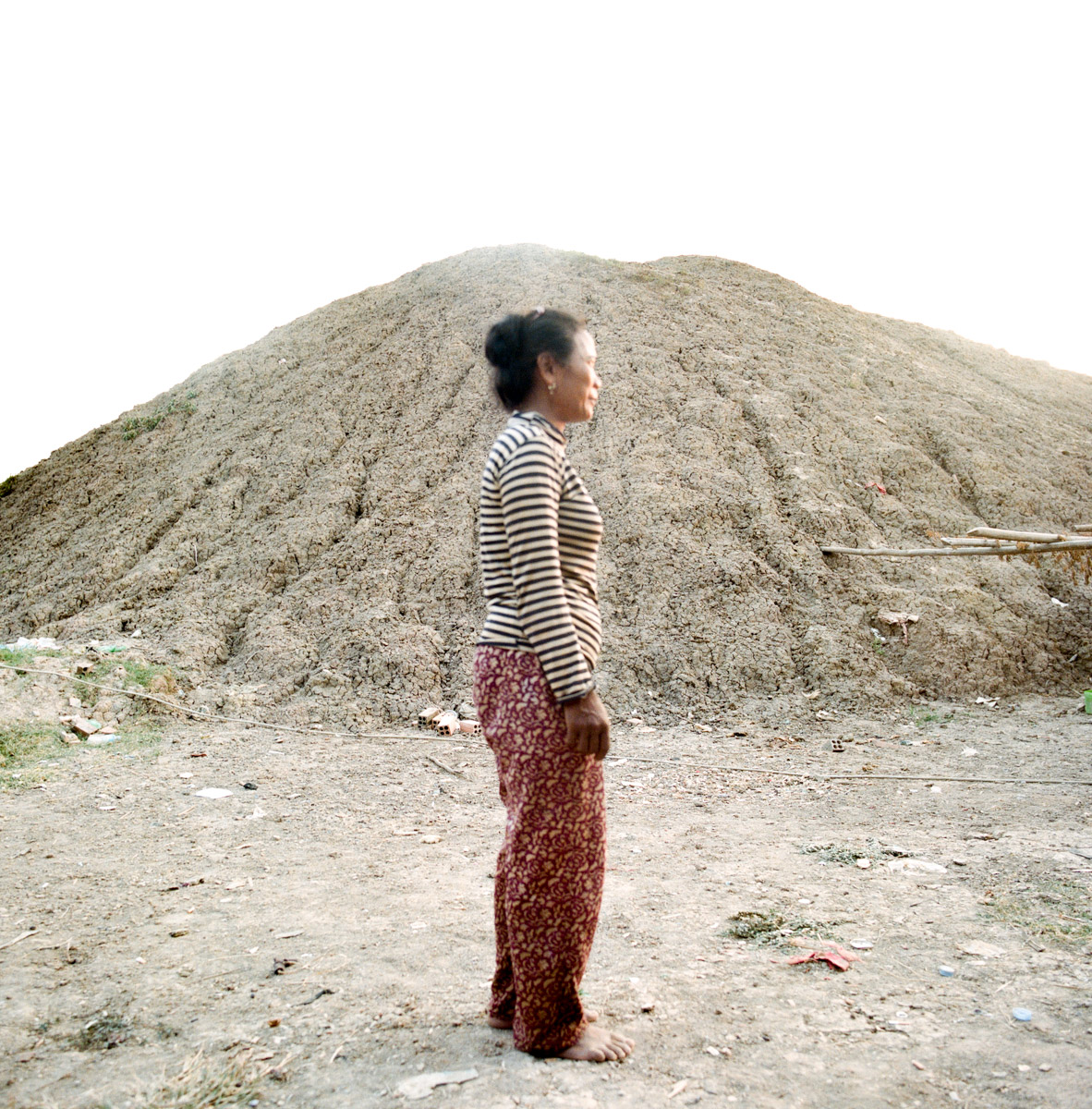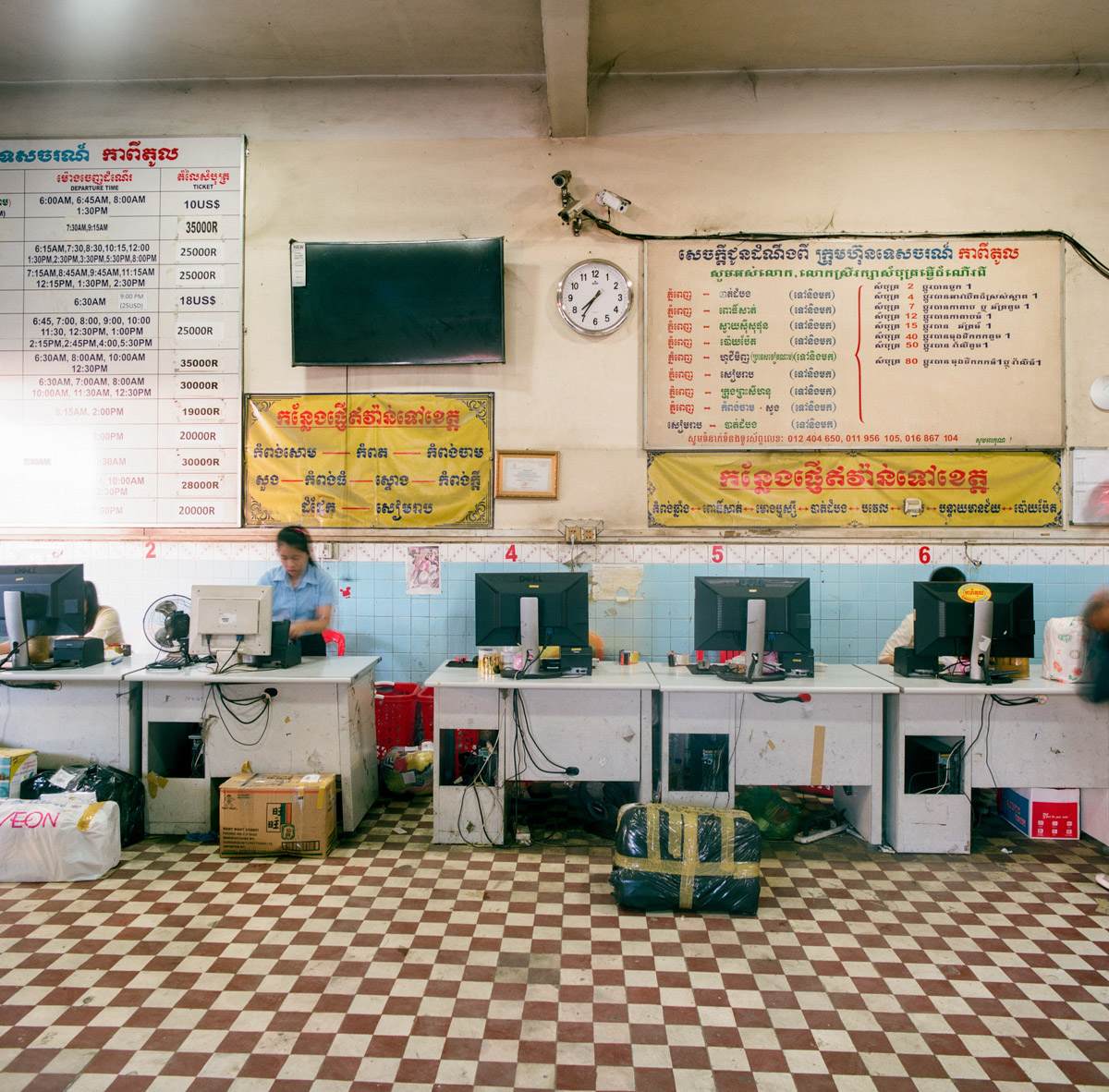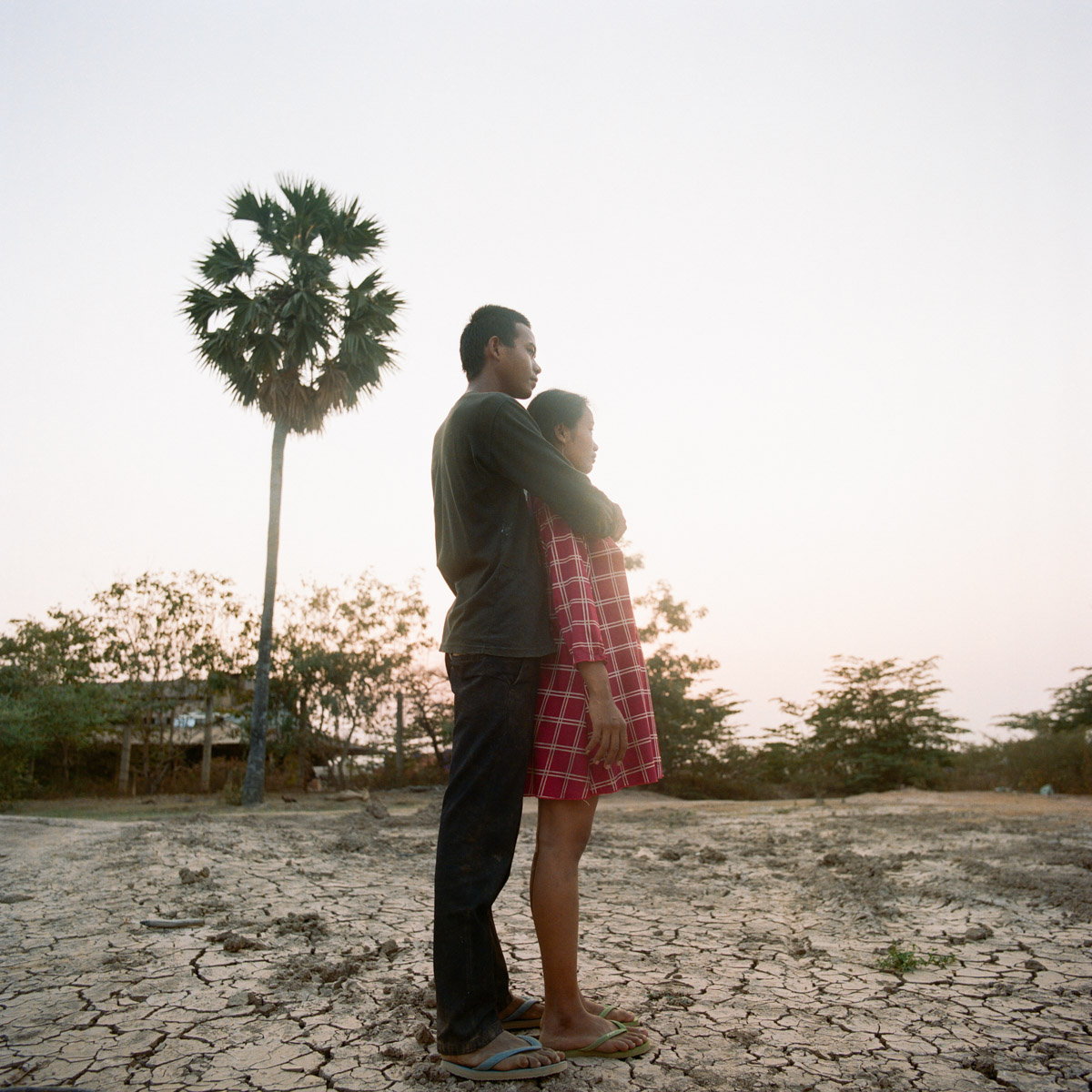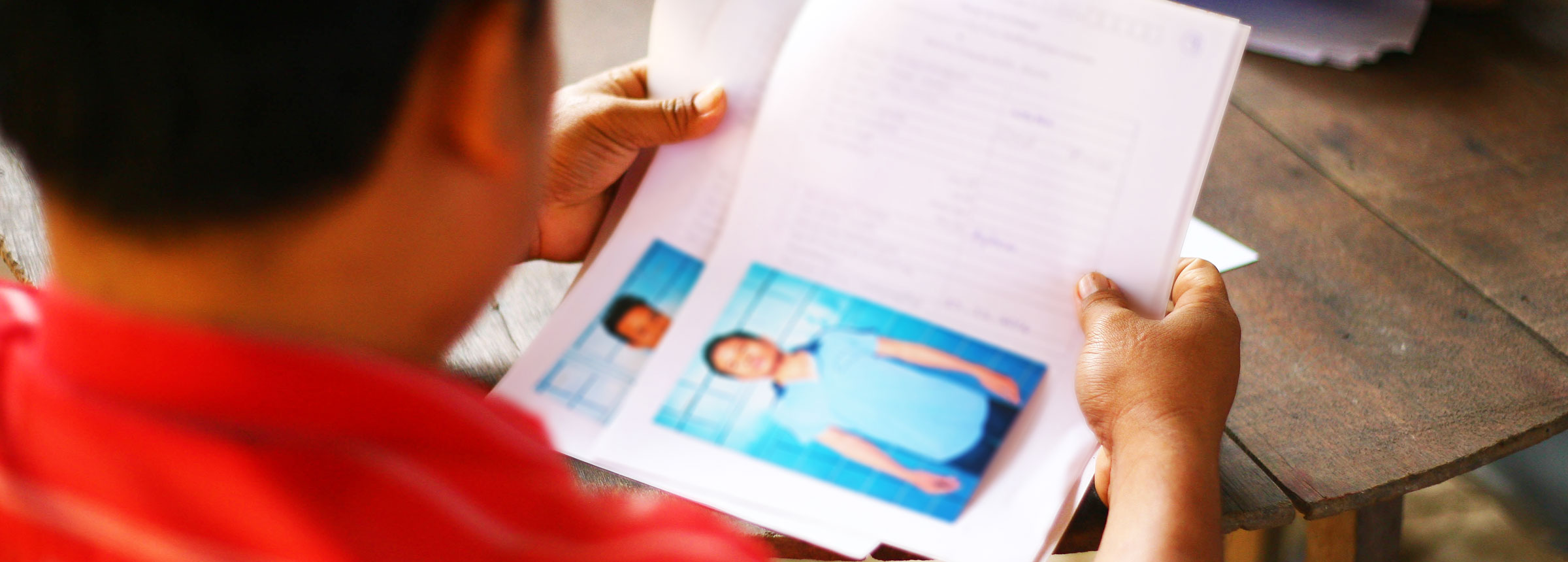
Facing the Future Together
She was trafficked in Malaysia; he in Indonesia. Then they came home — and found each other.
Kannitha, 20, was just a teenager when she and her mother, Sophea, 42, left Cambodia for Malaysia. A broker told them that they could make $330 a month there as domestic workers, so Sophea borrowed money to make the trip. Kannitha’s father, Rathana, stayed home to farm and look after her younger brothers. (His name and all the names in this story have been changed to protect privacy.)
Once in Malaysia, Sophea and Kannitha quickly learned that they had been swindled. “I worked with four families — not one. I cleaned the houses and cars and took care of the dogs,” Sophea says. “I worked so hard I wasn’t able to go to sleep until 1 a.m.”

For all this hard work, the women were paid … nothing. “The broker took everything,” Sophea says. Because she wasn’t sending money home, Rathana lost the cow and farm that had been keeping the family afloat. Now Sophea was even more desperate, begging a series of brokers (as is often the case, she was passed from one to another) to help her get out of the country.
This is where Winrock entered the picture. Through its USAID-funded Cambodia Countertrafficking in Persons (CTIP) project, Winrock heard about the women’s plight and helped Sophea and Kannitha return home. (They are two of the more than 1,700 people the project has returned home in the last three years.) CTIP immediately provided them with food, medical treatment and counseling; later the project supplied a boat, fishing nets and other equipment to help the family earn a living.
Winrock helped Kannitha another way, too, by inviting her and her mother to a Survivor’s Forum in September 2016. Though Kannitha didn’t know it at the time, she would meet her future husband there.

Survivors’ Forums are multi-day events where victims gather to meet and support each other and learn about safe migration. This particular forum also became a matchmaking session — at least it did for two of the people there. Because at the same time that Kannitha and Sophea were working in Malaysia, a young man named Leap, 23, was on a fishing vessel off the coast of Thailand. He, too, had cast his lot with a broker who promised him high wages. But his boat was intercepted for fishing in Indonesian waters. The captain and crew were all arrested, and Leap spent two months in an Indonesian jail. The International Organization for Migration (then a Winrock partner) came to his aid, and he returned to Cambodia in March 2016. Later that year, he found himself at the same Survivor’s Forum Kannitha and Sophea were attending.
If it wasn’t love at first sight, it was something very close for Kannitha and Leap. “We don’t use words. We use eyes,” Kannitha says, describing their immediate attraction. It was only later, after Leap had gotten Kannitha’s phone number from her mother, that the couple started getting to know each other. And they stayed in touch even when Kannitha moved to Phnom Penh to work. A year after meeting Kannitha, Leap was calling her mother again — this time to ask for permission to wed. (In Cambodia, it’s traditional to ask the mother rather than the father this question.)

The couple married in December 2017 and are expecting their first child in April. They are currently working at a brick factory and saving as much money as they can. They have big plans. “We want to have our own business, our own land,” Leap says.
As they were getting to know each other, Kannitha and Leap spoke of many things. But they didn’t discuss their trafficking ordeals until after they were married. “The experience was so tough, so difficult,” Kannitha says. “It still hurts, what I experienced in Malaysia.”
But now she has someone to share it with, someone who understands the pain. From something very bad came something very good. Now Kannitha and Leap are facing the future together.
Related Projects

